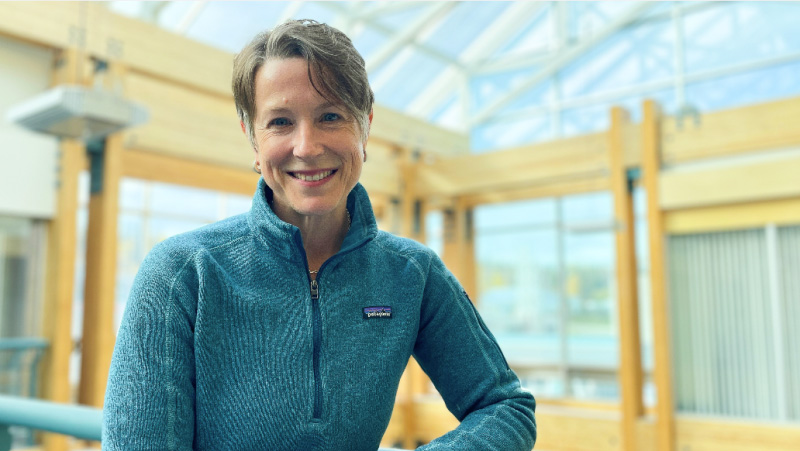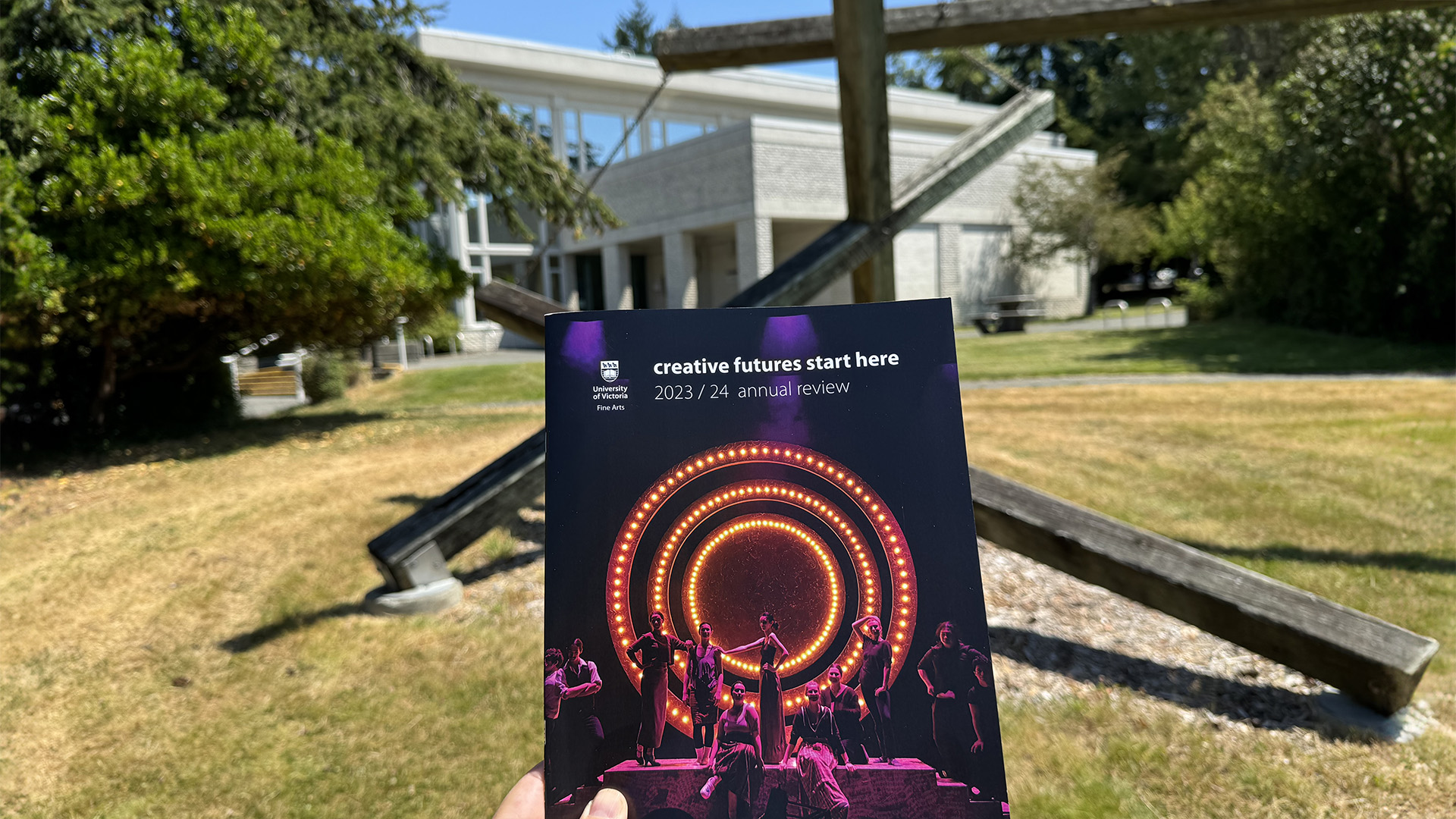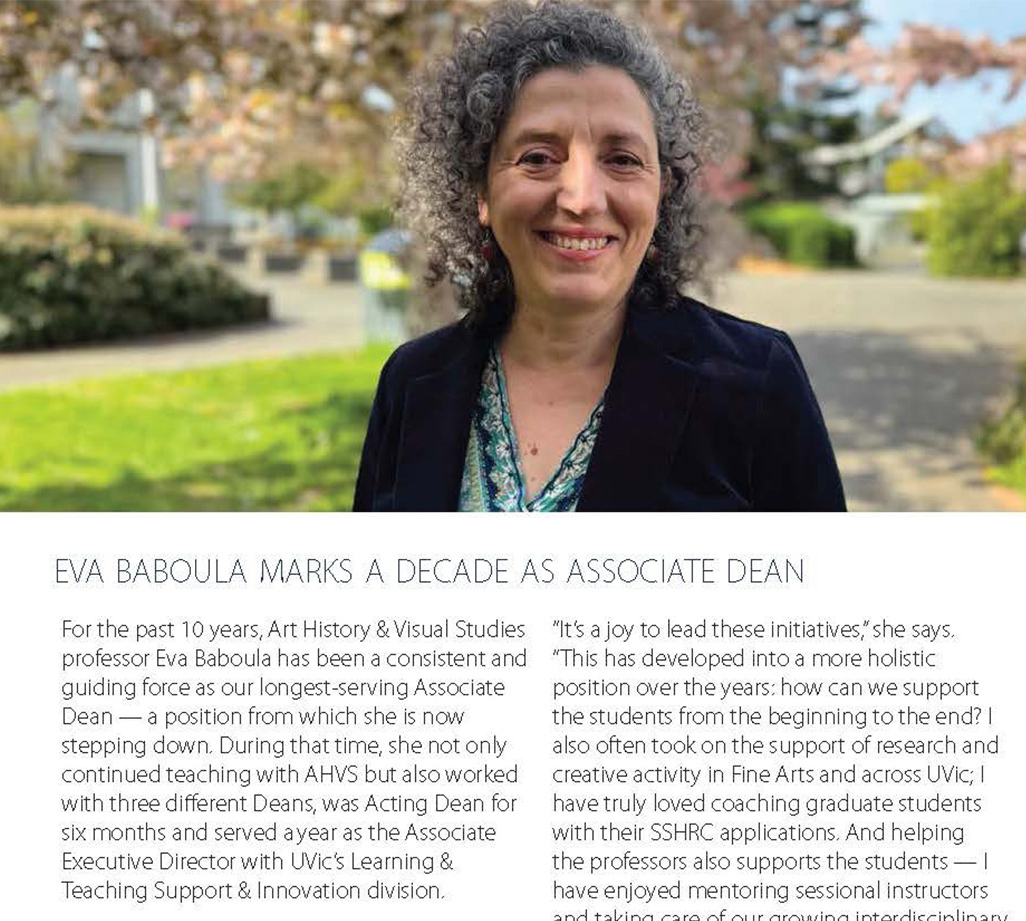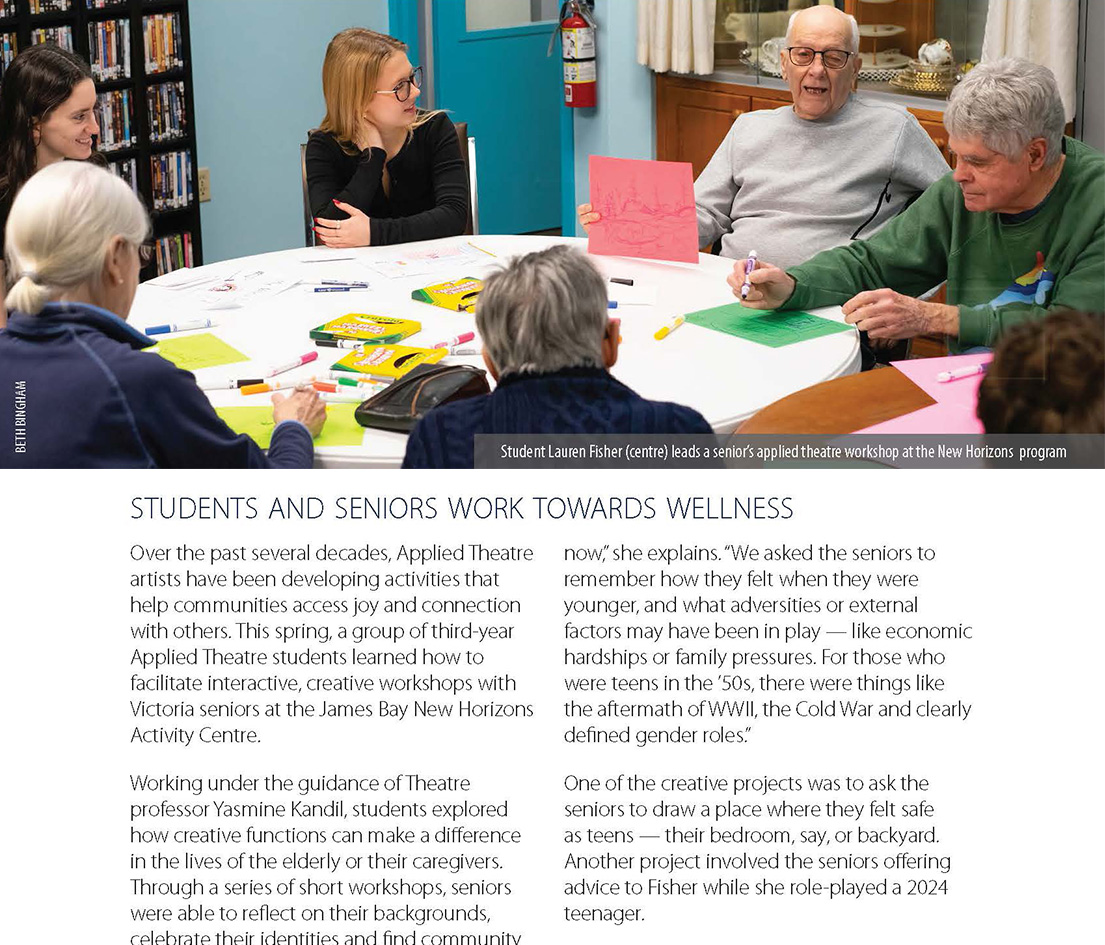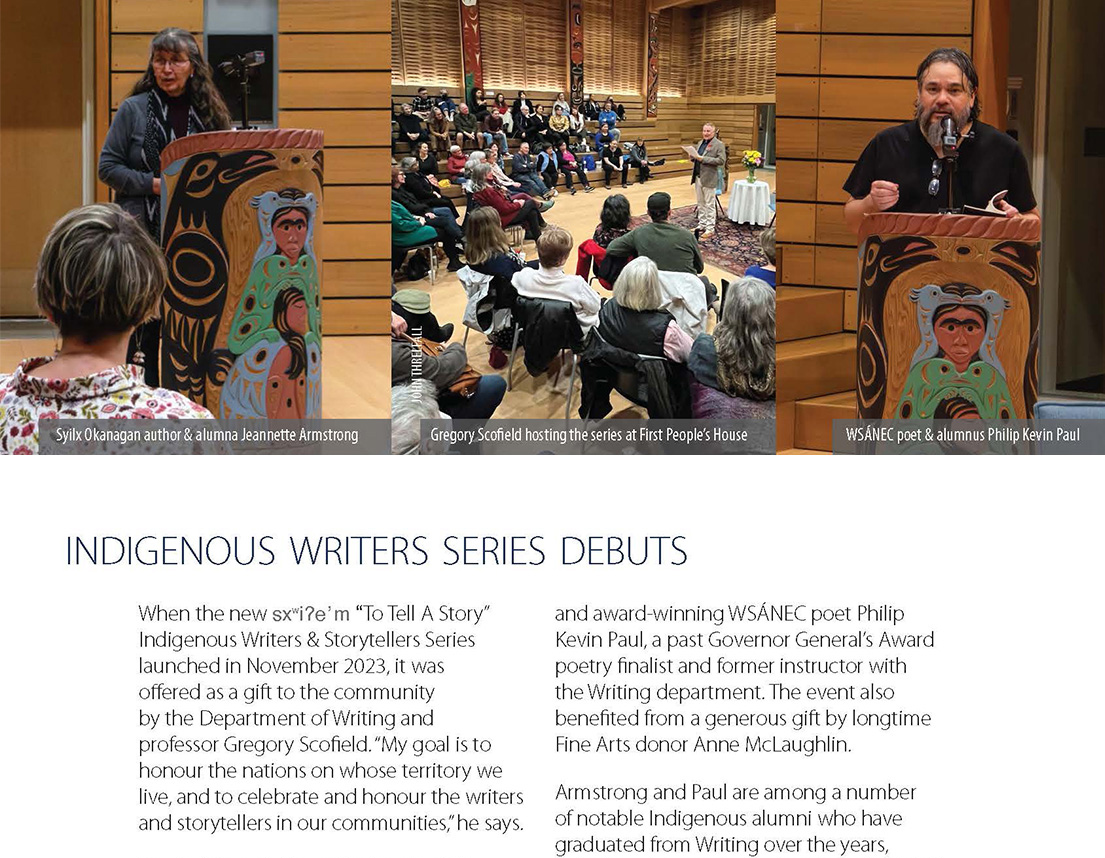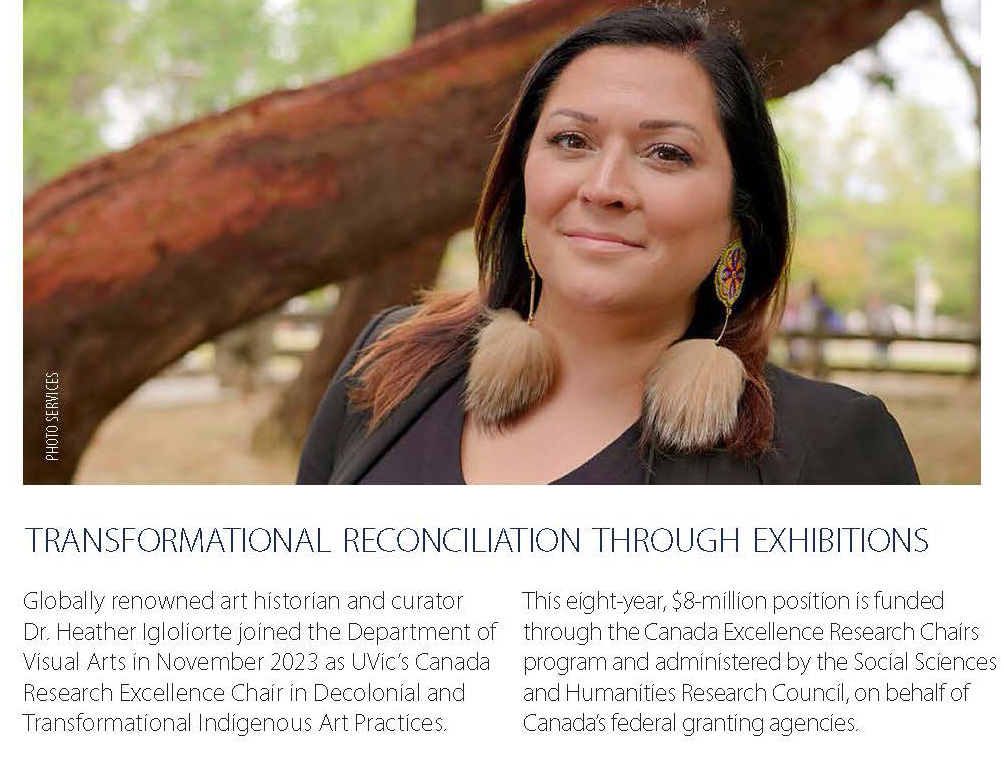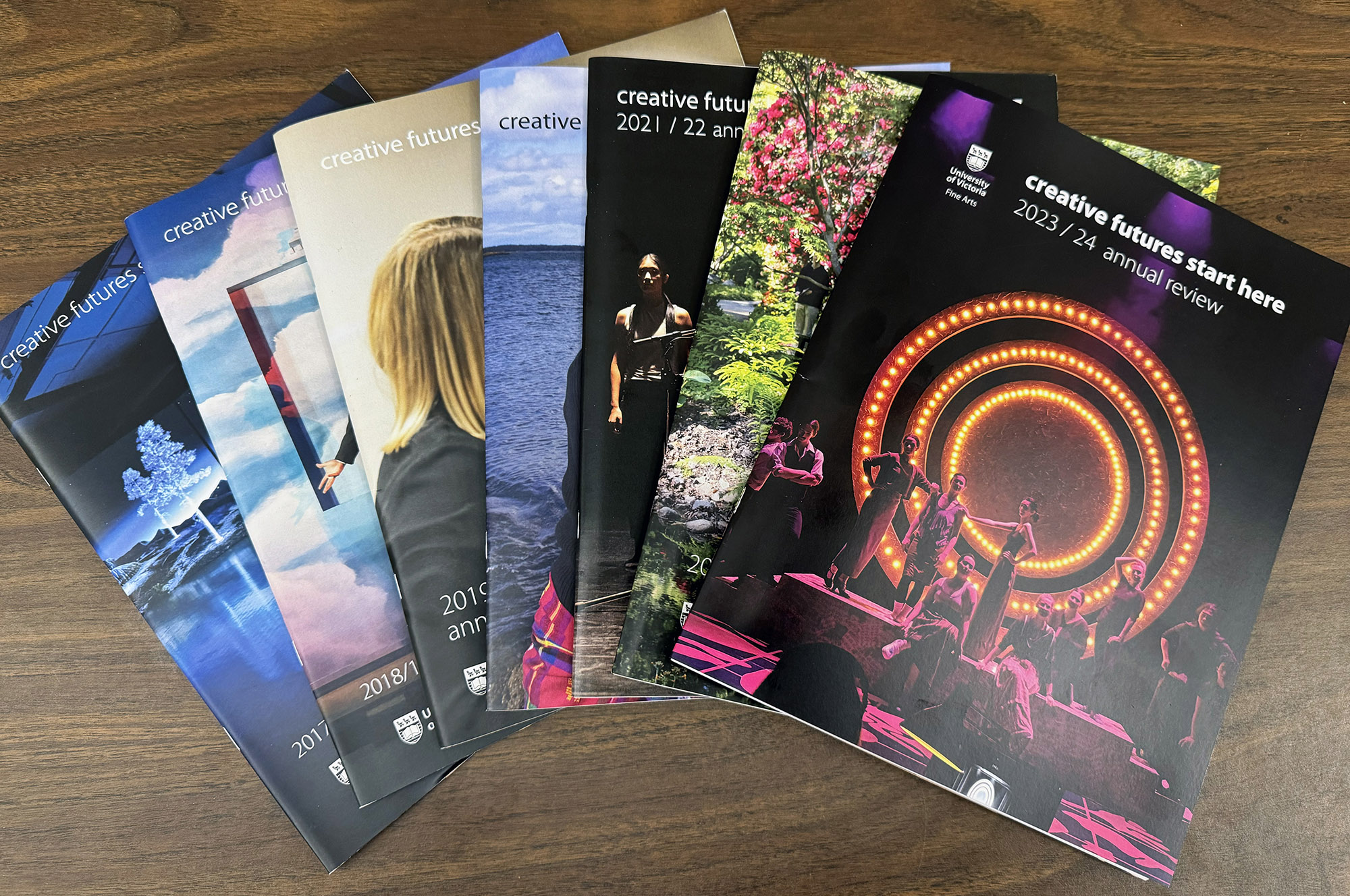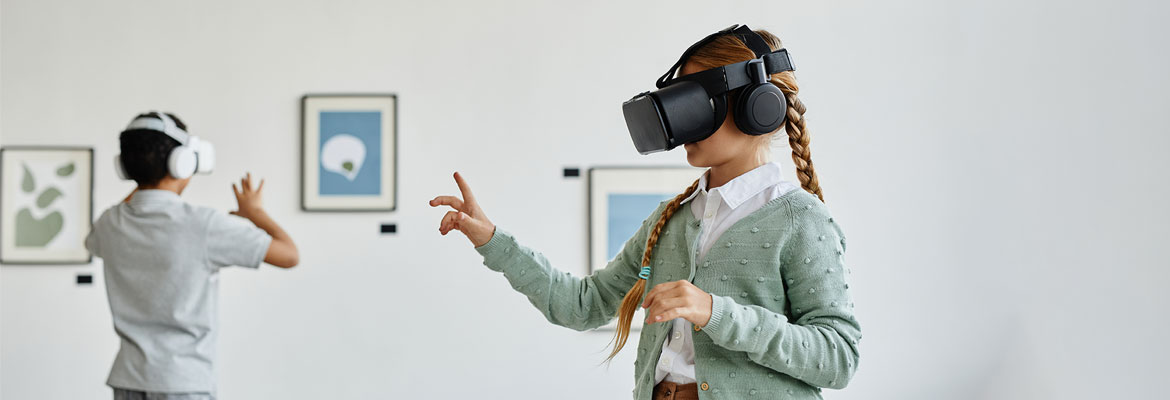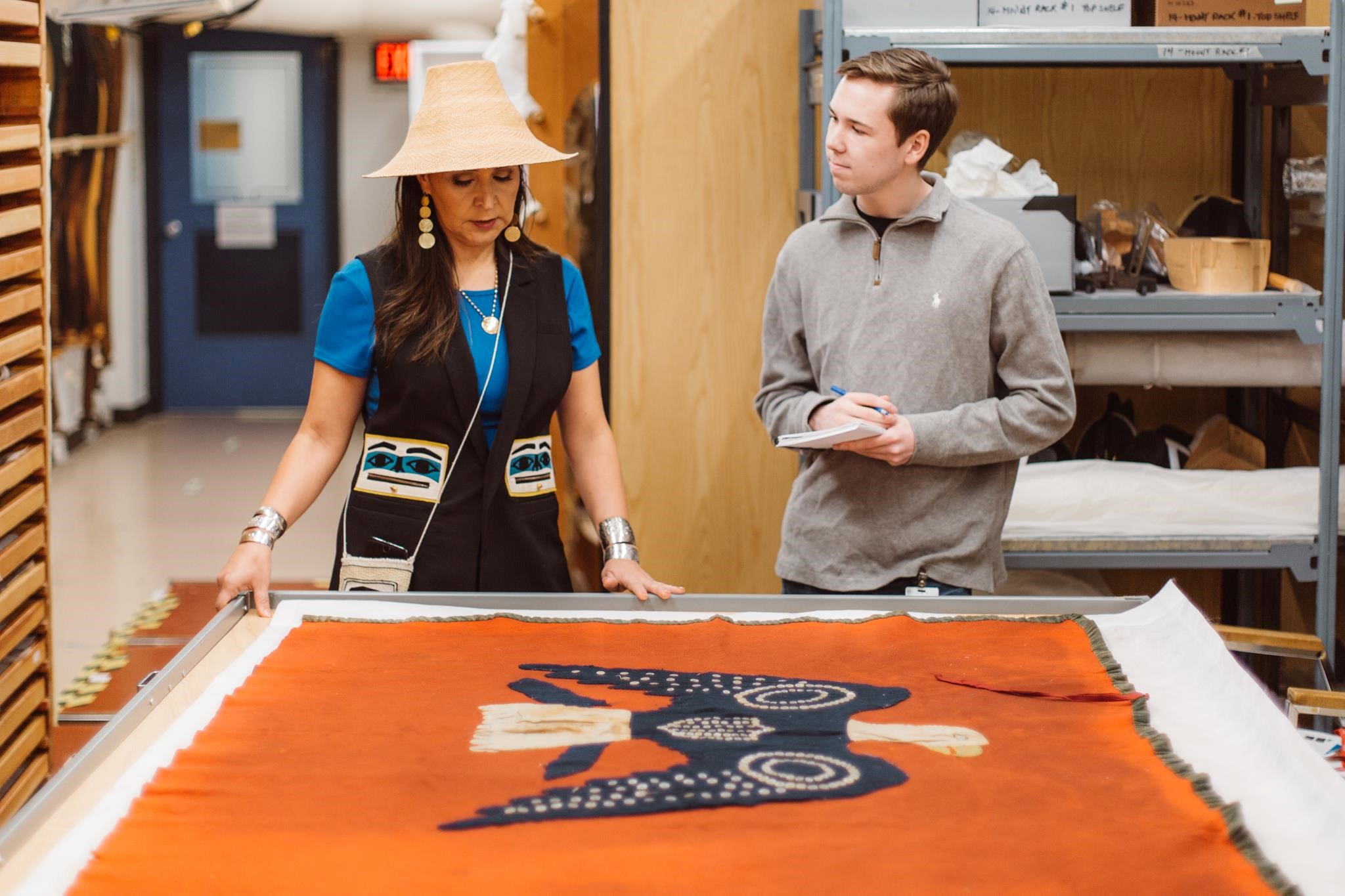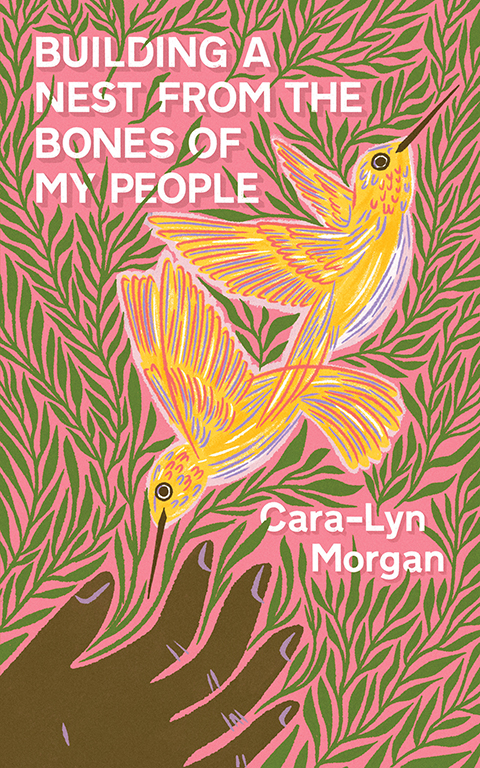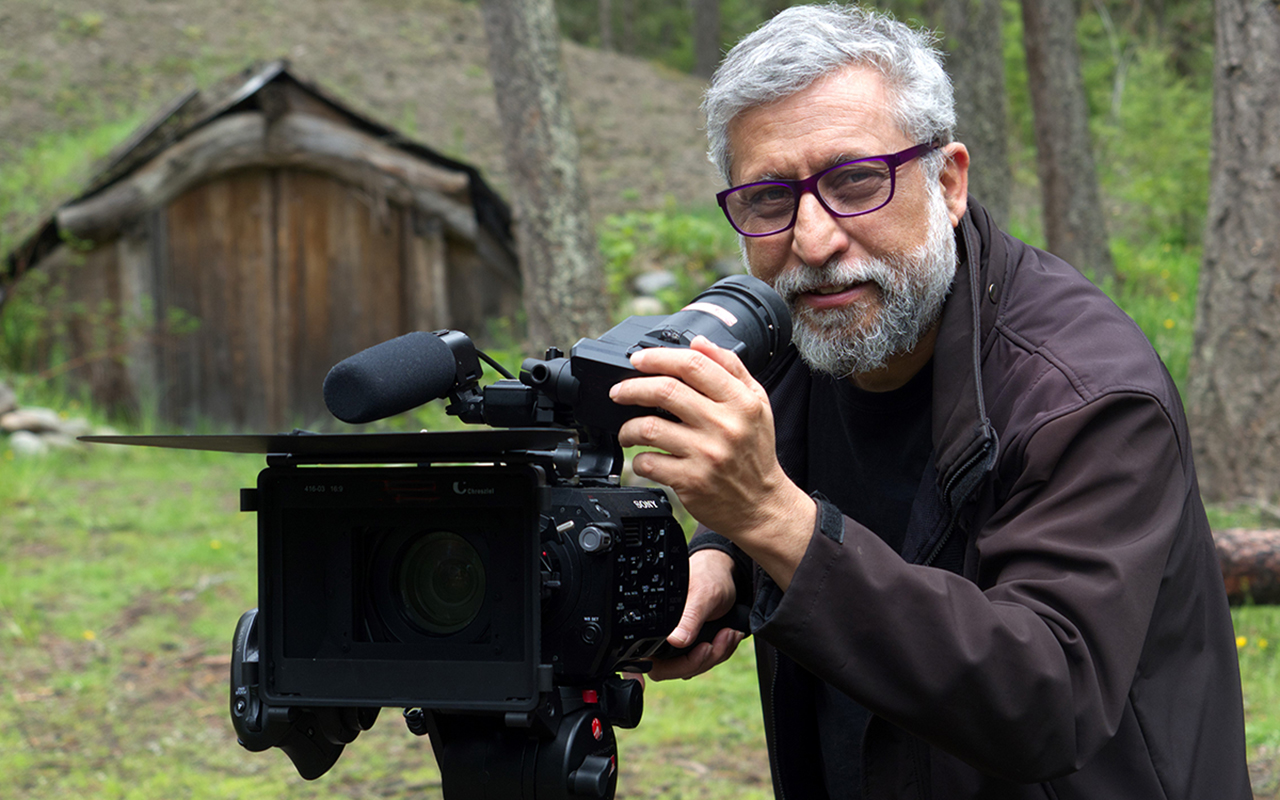Externally funded research (select)

Heather Igloliorte (centre) speaking as part of the Distinguished Women Scholars event at Legacy Gallery’s 2024 exhibit, Latent (Beth Bingham photo)
Each year, Fine Arts faculty members receive external funding for their ongoing creative and scholarly projects. This is a current selection of grants awarded to faculty in 2023/24 from the Social Sciences and Humanities Research Council, the Canada Council for the Arts, the BC Arts Council and others.
- Cedric Bomford (Visual Arts) received support from Canada Council’s Arts Abroad program.
- Taylor Brook (Music/PEA) received funding from Harvard’s FROMM Foundation to support new work for piano and electronics.
- Ajtony Csaba (Music) received two Canada Council grants, a BC Arts Council grant (for the SALT New Music Festival) and funding from the Ernst von Siemens Music Foundation.
- Sean Holman (Writing) received a SSHRC Connection grant for the fall 2024 Climate Disaster Project verbatim theatre project, Eyes of the Beast.
- Heather Igloliorte (Visual Arts) received SSHRC support as the Canada Excellence Research Chair in Decolonization & Transformational Artistic Practice.
- Sasha Kovacs (Theatre) received a SSHRC Partnership Grant as co-director of Gatherings: Archival & Oral Histories of Performance, with Dean Allana Lindgren as co-investigator.
- Mark Leiren-Young (Writing) received a BC Arts Council Creative Writing grant.
- Kathryn Mockler (Writing) received a BC Arts Council Creative Writing grant.
- Kirsten Sadeghi-Yekta (Theatre) received a SSHRC Insight grant to support the five-year project Staging Our Voices: Strengthening Indigenous languages through theatre.
- Suzanne Snizek (Music) received a SSHRC Partnership Grant for her work supporting Visual Storytelling & Graphic Art in Genocide & Human Rights Education.
- Jennifer Stillwell (Visual Arts) received a UVic Research/Creative Project Grant and a SSHRC Explore Grant.
- Anthony Tan (Music) received a UVic Research/Creative Project Grant and a SSHRC Explore Grant.
- Paul Walde (Visual Arts) received support from the Canada Council’s Arts Abroad program.

